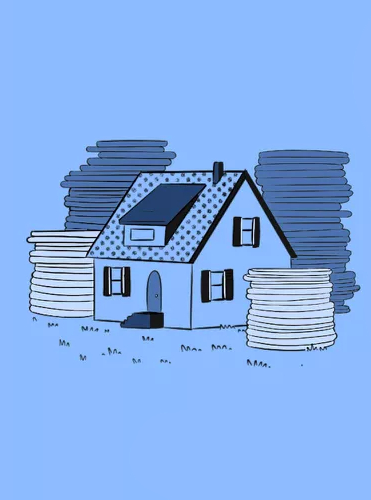What Is a Home Equity Loan?
Home Equity Loans – also known as an equity loan, home equity installment loan, or second mortgage is a type of consumer debt. Home equity loans allow homeowners to borrow against the equity in their homes. The loan amount is based on the difference between the home’s current market value and the homeowner’s mortgage balance due. Home equity loans tend to be fixed-rate, while the typical alternative, home equity lines of credit (HELOCs), generally have variable rates.


KEY TAKEAWAYS
- A home equity loan, also known as a home equity installment loan or a second mortgage, is a type of consumer debt.
- Home equity loan allow homeowners to borrow against the equity in their residence.
- Home equity loan amounts are based on the difference between a home’s current market value and the homeowner’s mortgage balance due.
- Home equity loans come in two varieties: fixed-rate loans and home equity lines of credit (HELOCs).
- Fixed-rate home equity loans provide one lump sum, whereas HELOCs offer borrowers revolving lines of credit.
How a Home Equity Loan Works
Essentially, a home equity loan is akin to a mortgage, hence the name second mortgage. The equity in the home serves as collateral for the lender. The amount that a homeowner is allowed to borrow will be based partially on a combined loan-to-value (CLTV) ratio of 80% to 90% of the home’s appraised value. Of course, the amount of the loan and the rate of interest charged also depend on the borrower’s credit score and payment history.
Traditional home equity loans have a set repayment term, just like conventional mortgages. The borrower makes regular, fixed payments covering both principal and interest. As with any mortgage, if the loan is not paid off, the home could be sold to satisfy the remaining debt.
A home equity loan can be a good way to convert the equity you’ve built up in your home into cash, especially if you invest that cash in home renovations that increase the value of your home. However, always remember that you’re putting your home on the line—if real estate values decrease, you could end up owing more than your home is worth.
Should you want to relocate, you might end up losing money on the sale of the home or be unable to move. And if you’re getting the loan to pay off credit card debt, resist the temptation to run up those credit card bills again. Before doing something that puts your house in jeopardy, weigh all of your options.
